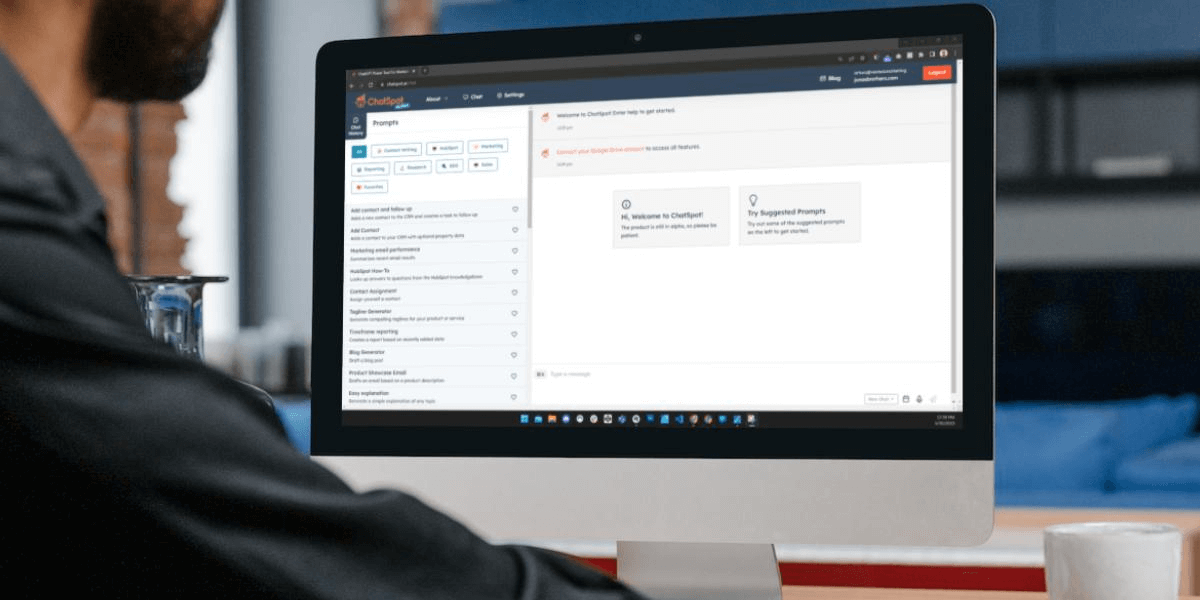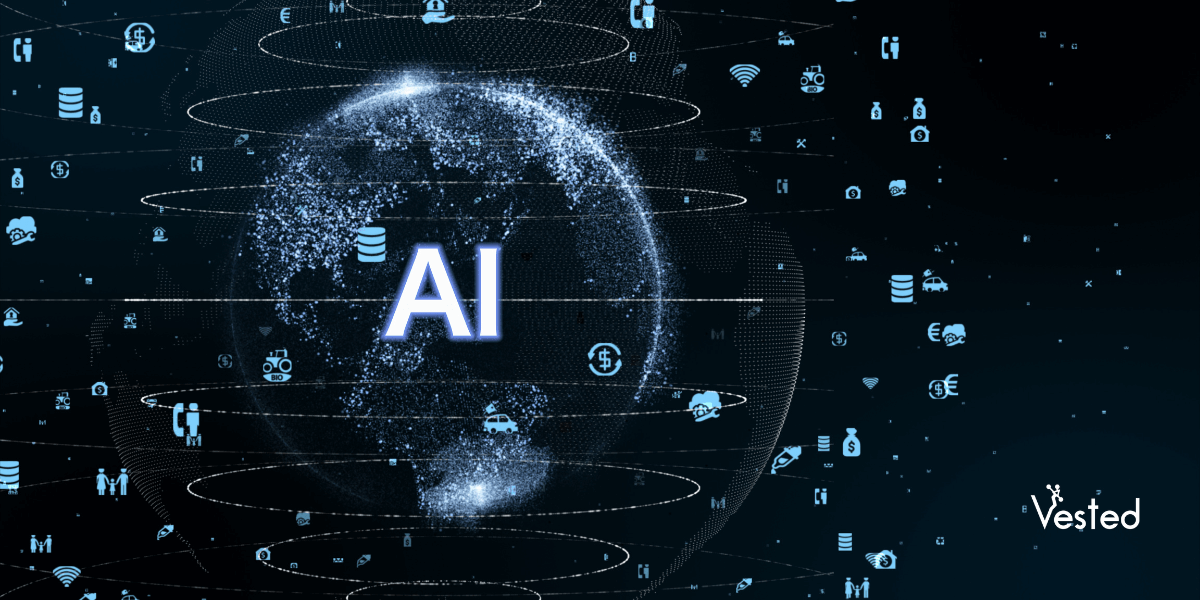How AI is Changing the Inbound Marketing Industry
In the rapidly evolving digital ecosystem, Artificial Intelligence (AI) is revolutionizing inbound and digital marketing. This blog delves into how...

7 min read
![]() Vested Marketing
:
Updated on November 6, 2025
Vested Marketing
:
Updated on November 6, 2025
Table of Contents
In the rapidly evolving digital landscape, the interplay between Artificial Intelligence (AI) and Search Engine Optimization (SEO) has become a focal point of discussion among marketing professionals. As an expert in SEO, I aim to dissect this complex relationship and explore whether AI will eventually replace SEO or if they will coexist, complementing each other's capabilities.
The integration of Artificial Intelligence (AI) into the realm of Search Engine Optimization (SEO) has brought about a monumental shift in how we approach digital marketing. The impact of AI on SEO is multifaceted, fundamentally changing the way search engines operate, how SEO strategies are developed, and how content is created and optimized for search engines.
One of the most significant impacts of AI on SEO is the evolution of search engine algorithms. Search engines like Google now use AI-driven algorithms, such as RankBrain, to better understand and process user queries. These AI algorithms are capable of learning and evolving, constantly improving their ability to match users with the most relevant and high-quality content. This means that the algorithms are not just keyword-focused but are increasingly able to interpret the intent and context behind a search query.
AI technologies, such as Chat GPT, have enabled search engines to offer more personalized experiences to users. By analyzing user behavior, preferences, and past search history, AI can tailor search results to better suit individual users. This heightened level of personalization means that SEO strategies must now consider user intent and experience as central components, rather than solely focusing on keyword optimization.
The impact of AI on content creation and optimization is profound. Search engines are now more adept at identifying and rewarding high-quality, relevant content. AI helps in distinguishing between content that genuinely provides value to the reader and content that is created for the sole purpose of ranking higher on search engines. This shift has compelled SEO professionals to prioritize content quality and relevance, focusing on creating comprehensive and user-friendly content.
AI's ability to process and analyze large datasets quickly has opened up new possibilities for predictive analysis in SEO. SEO professionals can now use AI tools to forecast future trends, understand emerging user behaviors, and adapt their strategies in real time. This capability allows for more agile and proactive SEO strategies, making it possible to stay ahead of changes in search patterns and algorithm updates.
The rise of AI-powered voice assistants like Amazon's Alexa, Apple's Siri, and Google Assistant has revolutionized the field of voice search optimization. With more users relying on voice commands to perform searches, SEO strategies need to adapt to this changing landscape. This involves optimizing for natural language queries and focusing on more conversational, long-tail keywords.
AI has significantly increased the efficiency of various SEO tasks. Routine tasks such as keyword research, competitor analysis, and technical SEO audits can be automated using AI tools. This automation not only saves time but also provides more accurate and comprehensive data, enabling SEO professionals to focus on strategy and creativity.
In the AI era, the role of SEO has evolved significantly, adapting to the advancements in artificial intelligence and machine learning. This evolution has not diminished the importance of SEO; rather, it has redefined its functions and objectives, making it an integral part of a more sophisticated digital marketing strategy.
One of the critical roles of SEO in the AI era is as an interpreter of AI-driven insights. While AI excels at data processing and pattern recognition, it requires human expertise to translate these insights into effective SEO strategies. SEO professionals must understand the implications of AI analyses, discerning how changes in search patterns, user behaviors, and algorithm updates affect website optimization.
With AI's ability to understand and prioritize user intent, SEO in the AI era has become more user-centric. SEO professionals must ensure that their strategies align not just with keywords but with the overall intent and experience of their target audience. This involves creating content that answers users' queries comprehensively, optimizing websites for usability and engagement, and ensuring mobile responsiveness, as mobile search increasingly dominates user behavior.
AI's emphasis on content relevance and quality has elevated the role of SEO in content creation and optimization. SEO experts are now tasked with crafting content that resonates with both AI algorithms and human readers. This dual focus requires a deep understanding of semantic search, natural language processing, and the ability to produce engaging, valuable content that addresses the users' needs and interests.
In the AI era, the technical aspects of SEO have become more complex and critical. AI-driven search engines are more adept at evaluating website health, including factors like site speed, mobile-friendliness, and secure browsing. SEO professionals must ensure that websites are technically sound and comply with the latest best practices and algorithm requirements along with incorporating URL backlinks, relevant to the content.
With the rise of voice-activated devices, SEO in the AI era also involves optimizing for voice search. This includes understanding the nuances of conversational search queries and focusing on local SEO, as many voice searches are local in nature. SEO professionals must adapt their keyword strategies to accommodate the more natural language used in voice queries.
Search engine algorithms are continuously evolving, thanks in large part to AI. SEO professionals must stay abreast of these changes, understanding how updates like Google's BERT and EAT (Expertise, Authority, Trustworthiness) principles affect search rankings. Adapting to these changes requires a constant learning mindset and the ability to quickly pivot strategies.
AI and SEO are not adversaries; instead, they are collaborators. AI assists SEO through advanced data analysis, predictive insights, and automation of mundane tasks. This collaboration enables SEO professionals to focus on strategic and creative aspects, such as content creation and user experience optimization.
For example, AI can automate keyword research and competitor analysis, allowing SEO experts to concentrate on crafting unique and engaging content strategies.
The question of whether AI will completely replace SEO is a topic of considerable debate in the digital marketing world. While AI brings impressive advancements in data processing, analysis, and automation, it's important to understand the unique roles AI and SEO play and how they complement each other rather than exist in opposition.
AI, for all its advancements, has limitations. While it excels at handling large volumes of data and identifying patterns, AI lacks the human touch necessary for creative content creation, emotional engagement, and understanding the subtleties of human behavior and culture. SEO, in contrast, thrives on these human-centric aspects. It requires empathy, creativity, and a deep understanding of human psychology to craft content that resonates with audiences.
SEO is not just about following algorithms; it's about understanding and connecting with human audiences. AI can provide data-driven insights, but interpreting these insights and crafting strategies that effectively engage and persuade real people requires human intuition and experience. The nuances of language, cultural contexts, and emotional appeals in content creation cannot be replicated by AI alone.
Rather than being replaced by AI, SEO is evolving alongside it. AI aids SEO professionals in automating mundane tasks, providing deeper insights, and enhancing decision-making processes. However, SEO experts are needed to translate these insights into effective strategies, ensuring content is not only optimized for search engines but also appealing and valuable to users.
As AI becomes more sophisticated, it also becomes more adept at identifying and penalizing manipulative SEO tactics (often referred to as "black hat" SEO). This development emphasizes the importance of ethical SEO practices. SEO experts play a crucial role in ensuring that strategies adhere to search engine guidelines and focus on providing genuine value to users.
Search algorithms are increasingly AI-driven, becoming more complex and sophisticated. SEO professionals must stay informed about these changes and adapt their strategies accordingly. This adaptation requires a deep understanding of how AI algorithms work and how they impact search results, something that AI alone cannot manage.
Interestingly, SEO plays a role in training AI algorithms. By optimizing content and websites according to current best practices, SEO professionals provide data that AI uses to learn about what constitutes quality content and user-friendly websites. This symbiotic relationship underscores the importance of SEO in shaping and refining AI algorithms.
AI algorithms are designed to prioritize user experience and valuable content. While they are getting increasingly sophisticated, it's unlikely that they will "outsmart" human SEO strategies. Instead, they compel SEO professionals to adopt more user-focused, high-quality content strategies.
This evolution pushes marketers towards ethical SEO practices, focusing on delivering value to the user rather than manipulating search engine algorithms.
Businesses must embrace the integration of AI into their SEO strategies to remain competitive. This includes investing in AI tools for data analysis and automation, and training their marketing teams to understand and leverage AI insights.
It's also crucial for businesses to focus on creating high-quality, relevant content. AI-driven SEO is heavily reliant on user experience, making it more important than ever to understand and cater to your audience's needs and preferences.
As businesses seek to align their SEO strategies with the latest AI innovations, HubSpot offers a powerful suite of AI tools designed to streamline marketing, sales, and customer service. Under the umbrella of Breeze, HubSpot’s AI platform helps organizations automate workflows, personalize content, and optimize engagement across the entire customer journey.
While AI offers significant automation and insights, the need for SEO professionals remains. They are essential for interpreting AI data, understanding the nuances of search engine algorithms, and implementing effective SEO strategies.
An SEO professional's expertise in user experience, content creation, and ethical SEO practices cannot be replicated by AI alone. Their role is evolving but remains integral to the success of any SEO strategy.
In the dynamic landscape of SEO shaped by AI advancements, such as AI data centers, Vested Marketing emerges as a crucial partner for businesses aiming to optimize their digital marketing strategies. With their expertise in blending traditional SEO practices with the latest AI technologies, our team offers tailored, ethical SEO solutions. Our approach not only aligns with the evolving algorithms but also focuses on creating genuine user engagement.
To navigate the complexities of AI-enhanced SEO with confidence and ensure an impactful, future-proof online presence, contact us Vested Marketing today.
![]() As a certified HubSpot Partner Agency, we not only understand the benefits of using the inbound marketing platform to increase traffic and engagement, improve SEO, generate leads, design effective websites and boost sales, we know how to make it happen.
As a certified HubSpot Partner Agency, we not only understand the benefits of using the inbound marketing platform to increase traffic and engagement, improve SEO, generate leads, design effective websites and boost sales, we know how to make it happen.
We are inbound marketing experts, SEO gurus and top-notch website developers.
Our team of Engineers Turned Marketers can help get you noticed - for a more innovative and effective way to reach customers, or provide a more seamless way for companies to find your services. Inbound Marketing has no limit to industry, serving from Crypto & NFT, mining, oil and gas, technology & automation, engineering, technology, construction, healthcare, to industrial turnarounds & manufacturing.

In the rapidly evolving digital ecosystem, Artificial Intelligence (AI) is revolutionizing inbound and digital marketing. This blog delves into how...

Artificial intelligence is reshaping how businesses approach digital marketing, with SEO and Answer Engine Optimization (AEO) standing at the...